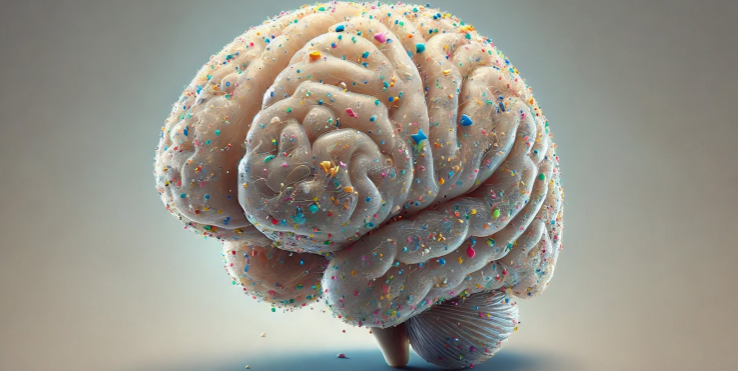Plastic, as we know it, is everywhere. It is globally used and is a daily aspect of our lives. Plastic is a part of buildings, used in transportation, and is most commonly known for being a part of daily household products. Although an extremely innovative technology that has changed the way we live our lives, plastic might be as bad as it is good. It has contributed to pollution, extinction of species, and climate change. In addition to the current damage it has done, a recent research study has unveiled a shocking discovery of microplastics being found in human brain tissue. This finding has raised significant concerns among health experts and scientists regarding the potential impact on the human body as it could affect how we as humans function on a daily basis.
So, what are microplastics and where do they come from? “Microplastics are little pieces of plastic,” Mr. Walls (S), the AP biology teacher at YLHS, says, “They can be formed in factories to give volume to things like cosmetics or glitter, or they can be the remains of broken down bigger pieces of plastic.” They are virtually inescapable as they are everywhere from the air we breathe to the food we consume regularly. Additionally, this recent finding is not even the first time people have found microplastics in the human body. Before this, it had been found in places like the lungs, liver, and blood. Despite this, microplastics did not cause much harm or even affect the human body, if at all.
However, this recent find brings more concern to health officials, because microplastics have been found in the olfactory bulbs, which are right above the nose. This is important because those two bulbs are located in the forebrain and have a vital job: helping detect and process scents and odors. According to some researchers, this means that the olfactory pathway to the brain might allow microplastics to reach areas beyond the bulb and go further inside the brain, potentially affecting how the brain processes certain things for better or worse. Dr. Thais Maud, an associate professor of pathology at the University of São Paulo Medical School in Brazil who is the lead study author, says, “Previous studies in humans and animals have shown that air pollution reaches the brain, and that particles have been found in the olfactory bulb, which is why we think the olfactory bulb is probably one of the first points for microplastics to reach the brain” (NBC News). Despite all these studies and research being done, little is actually known about how much these microplastics are affecting us and how they are able to pass through the many barriers our bodies set up so things like this don’t enter and go further into the body.
As of right now, microplastics aren’t seen as a major hazard to human health and aren’t expected to be fully understood for another couple of years. Consequently, there are no current solutions to solve this current issue, but despite this, there are still a few things you can do to reduce the amount of plastics you consume. Researchers highly recommend reducing the amount of plastic in preparing food such as microwaving and using tap water instead of bottled and eating less processed products, which come with a lot more microplastics than people think. By reducing your consumption of plastic, you can decrease the amount that goes into your body by a considerable amount. This decrease can help prevent plastics from affecting
anything occurring in your body. In fact, the News England Journal of Medicine has found a direct connection between microplastics being found in human arteries and having a higher risk of a heart attack. Essentially, the less plastic you use, the less of a risk you are taking by lessening your consumption of plastic which could affect your body.
Now, as our understanding of microplastics grows, it is extremely clear that this is a growing issue. These findings show that we as humans should start to rethink our growing dependency on plastics and consider a renewable and sustainable source before human lives are affected greatly.





























Maddie Guan • Oct 24, 2024 at 7:51 AM
This was so interesting to learn about.